
I had never been much interested in agates, but these photos really opened my eyes to the diversity and beauty of these round rocks. Now geography is not my strong suit – I leave that to Leigh – but when I realized that Agate Creek is actually up in our neck of the woods (North Queensland, Australia), arrangements were made to spend a few days there.
More than a century ago, prospectors explored the area around Gilberton for gold deposits, as the region had shown a lot of promise for commercial gold mining ventures. It was discovered that an abundance of amygdule-derived agates had accumulated in one of the creeks that flowed into the Robertson River. These agates were believed to have weathered and eroded from basalts of Carboniferous age, which were covered in sedimentary sandstone material when this region was an inland sea. The creek became known as Agate Creek and was first officially mentioned by W.E. Cameron in his GSQ report dated 1900. At that time, agate was thought to be beautiful but of little real value as mines in Germany and Brazil supplied the world market.
After World War II had affected Germany’s output, a couple of commercial mining companies began using machinery to recover sufficient quantities to make a viable operation. Unfortunately, Agate Creek’s remoteness and lack of infrastructure were against them. Lapidary and rockhounding became a more popular pastime for hobbyists. After some considerable conflict between miners and fossickers in the field, the Department of Minerals & Energy amended the regulations to prevent mining with equipment from being carried out at Agate Creek. Anybody could use hand-tools, but this, of course, led to the closure of the mines and the area being subsequently declared a General Permission Area (GPA).
Diese Geschichte stammt aus der September 2021-Ausgabe von Rock&Gem Magazine.
Starten Sie Ihre 7-tägige kostenlose Testversion von Magzter GOLD, um auf Tausende kuratierte Premium-Storys sowie über 8.000 Zeitschriften und Zeitungen zuzugreifen.
Bereits Abonnent ? Anmelden
Diese Geschichte stammt aus der September 2021-Ausgabe von Rock&Gem Magazine.
Starten Sie Ihre 7-tägige kostenlose Testversion von Magzter GOLD, um auf Tausende kuratierte Premium-Storys sowie über 8.000 Zeitschriften und Zeitungen zuzugreifen.
Bereits Abonnent? Anmelden
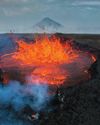
THE BRIGHT SIDE OF VOLCANIC ROCK
As a mineral resource, volcanic rock is decidedly short on glamour.
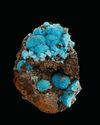
The Other Copper Minerals
12 Lesser-known Collectible Species

MINERAL COLLECTING -AND ROCK & GEM
Evolving Together FOR 54 YEARS
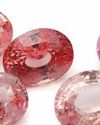
Gemstone Trends
A Look Back at 2024 & What to Expect in 2025
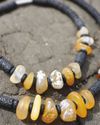
How to Make a GEM BEAD NECKLACE
No Lapidary Experience Needed!
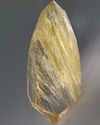
Framing Nature's Art
Faceting Rutilated Quartz for Beginners
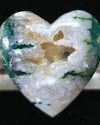
BEDAZZLED BLUE SEAM AGATE
More than several centuries ago, mining was the profession most often seen as befitting of men.
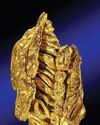
ROCK & GEM FIELD GUIDE:
Spinel is a captivating gemstone with a rich history of being mistaken for gems like ruby and sapphire.
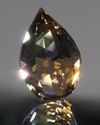
SNAKE SCALE DROP 1.5:1
This Faceting Focus is revisiting the briolette gemstone design because of its popularity with independent and hobby gemstone faceters.
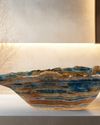
STONE CHIC
How Earth-Inspired Decor Brings Comfort to our Home